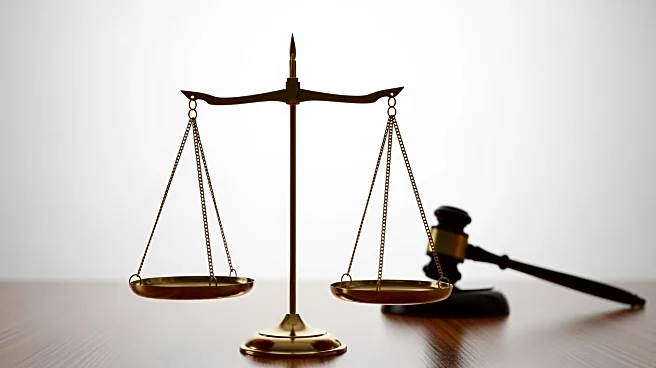What's Happening?
The Supreme Court is reviewing a case challenging the legality of tariffs imposed by President Trump during his second term. These tariffs, enacted under the International Emergency Economic Powers Act
(IEEPA), target imports from countries like China, Canada, and Mexico, citing national emergencies related to drug trafficking and trade deficits. If the court rules against Trump, businesses could receive refunds for tariffs paid, although consumers might not see immediate price reductions. The case could affect many tariffs imposed in 2025, but not those related to specific sectors like steel and aluminum.
Why It's Important?
The Supreme Court's decision could have significant implications for U.S. trade policy and economic relations. A ruling against the tariffs may lead to refunds for businesses, potentially boosting their financial positions. However, it could also introduce uncertainty and logistical challenges as companies navigate the potential changes. The outcome may influence future trade strategies and the administration's ability to impose tariffs under emergency powers. The decision could also impact consumer prices and broader economic conditions, depending on how quickly businesses adjust to any changes.
What's Next?
If the Supreme Court strikes down the tariffs, the administration may need to explore alternative measures to address trade issues. This could involve using other sections of trade law or seeking congressional support for new tariffs. Businesses will be closely monitoring the situation to determine their eligibility for refunds and adjust their strategies accordingly. The timing of the court's decision and any subsequent actions by the administration will be critical in shaping the economic landscape and trade relations moving forward.
Beyond the Headlines
The case highlights the complexities of using emergency powers for trade policy and the potential legal challenges involved. It raises questions about the balance between executive authority and legislative oversight in regulating foreign commerce. The decision could set a precedent for how future administrations approach trade issues and the use of emergency powers in economic policy.










